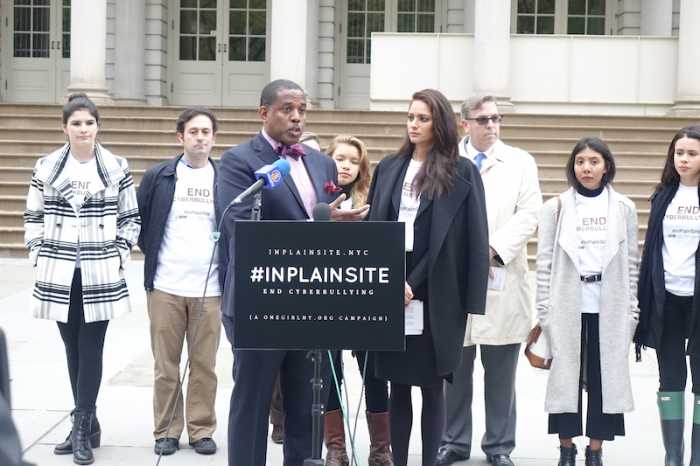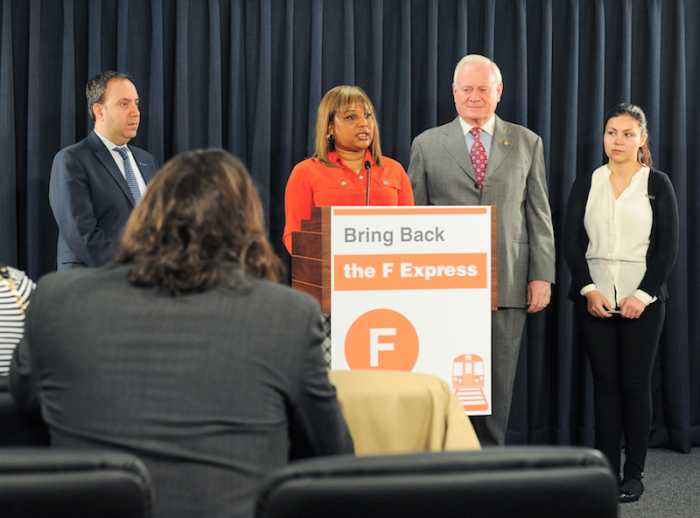With the legalization of marijuana bill language finalized city electeds and advocates wait with bated breaths for the expected vote on the legislation soon.
“I am very proud that we finally have a three-way agreed bill to legalize adult-use cannabis in a way that foregrounds racial justice, while balancing safety with economic growth, encouraging new small businesses, and significantly diminishing the illegal market,” said Senator Liz Krueger, who lead sponsor the bill in the Senate.
Assembly Majority Leader Crystal Peoples-Stokes said she was “thrilled” about the agreement. “Cannabis legalization in New York will be centered on equity, investment into communities, economic opportunities for historically disenfranchised people, research, education, and public safety. I am honored to sponsor this legislation and excited to see the positive impact it will have for so many New Yorkers,” said Peoples-Stokes.
The bill nailed down how the revenue should be spent and is largely outside of the City Comptroller office, but many candidates running for the office this year still advocate for the cannabis industry because of its impact on racial and criminal justice. Other candidates have weighed in that the expected money making bill should also definitely benefit the economy and small business sector in the city.
Manhattan Senator Brian Benjamin said this has been a big issue for him. As a champion of criminal justice reform in the Senate, he’s co-sponsoring the bill.
“I have been involved in the conversation around legalizing adult-use cannabis since I was first elected to the Senate, and I have always been focused on making one thing a priority: equity. First, that meant expunging the records of those whose lives were impacted by marijuana-related arrests, which I helped accomplish last session,” said Benjamin.
“This year, the bill I am co-sponsoring brings our state a step closer to achieving equity by not only ensuring that licenses go to the communities that have suffered from over-policing and disproportionate rates of marijuana-related arrests, but also that we direct revenue to those communities. The legislation, which I will be proud to vote for this week, will direct tax receipts from adult-use cannabis sales to education, drug treatment, and other programs to assist impacted communities in undoing the harm caused by the criminalization of cannabis,” said Benjamin.
Jawanza James Williams, Director of Organizing with VOCAL-NY, co-signed that the legislation was major for Black and Brown communities.
“After a lifetime of violence through marijuana prohibition, causing the unjust caging of Black, brown, and poor communities, and unmitigated collateral consequences, both structural and psychological, we are slated to finally begin to offer truth and restitution to those most impacted,” said Williams. “Our primarily Black and brown membership across the state of NY may finally see legislation that actually responds to their lived experiences by offering the dignity of recognition and pathways to economic elevation. We should expect nothing less.”
Brooklyn Councilmember Brad Lander, said that a new legal and regulated cannabis industry is an economic opportunity for New York. “But one that we must ensure directly benefits those who have been most harmed by the war on drugs and mass incarceration,” said Lander.
“In addition to expunging the records of those who were arrested for possession that will now be legal, the legislation does and should ensure that the millions in new revenue are directly invested in communities of color, including in job training, economic empowerment, youth development programming, and re-entry services,” said Lander.
Key provisions of the bill said it dedicates 40% of revenue to reinvestment in communities of color, with 40% to schools and public education, and 20% to drug treatment, prevention and education.
It also states that equity programs provide loans, grants, and incubator programs to educate people about the new industry, with a goal of 50% of licenses going to equity applicants.
“A significant portion of the new revenue from marijuana legalization should go back into directly helping small businesses recover from the pandemic. I have already proposed reimbursing any small business that has faced a covid-related fine and dropping any current fines. Small businesses are the backbone of this city and anyway we can help them get back on their feet, like providing financial assistance from a new revenue stream such as marijuana legalization, I am fully in support of,” said talk show host John Tabacco, a Republican candidate for comptroller.
Alex Pan, one of the youngest candidates for comptroller, also said legalizing weed would create thousands of jobs and bring in millions of additional tax revenue. He added that it’s a huge step forward in addressing the impact of drug enforcement in the city and harm on marginalized communities.
“As Comptroller, I’d direct the projected boom in New York’s cannabis industry towards our recovery from COVID-19, and use the additional revenue to boost mental health services and NYC Health and Hospitals, student programs such as SYEP, and additional grants to small businesses trying to survive,” said Pan.
“With the legalization of adult-use cannabis, our City has an opportunity to add a new revenue stream to revitalize itself from the pandemic that has caused much economic turmoil,” said Brooklyn Senator Kevin Parker. “This includes helping small businesses, funding programs that have a direct impact on assisting struggling New Yorkers, and providing a much-needed economic boost to our public schools.”
Parker said the main goal must be to ensure safe use of the drug while reinvesting the revenue into communities of color. “This legislation also helps us put an end to the illegal market and ends the unequal enforcement of cannabis laws on communities of color,” said Parker.
Joy Williams, President of Brooklyn NAACP and Legislative Director for New York State NAACP, called the bills “a victory for the many Black and Brown New Yorkers who were targeted due to the racist and predatory nature of the war on drugs.”
The bill aims to build a well-regulated industry that will “replace the illegal market, prevent domination by large existing players, and ensure that consumers know exactly what they are getting” when they purchase cannabis by creating an Office of Cannabis Management with a board of appointed members. The office will have the power to evaluate license applicants’ use, expand the medical cannabis program, and regulate homegrown weed plants for adults.
Queens Assemblymember David Weprin said an early supporter of legalizing marijuana and continues to proudly sponsor the bill. “The taxes from any revenue generated from the sale of cannabis will be a major booster to our economy and would create sustainable jobs for the five boroughs,” said Weprin.
Candidate Reshma Patel said she applauds the work of activists and officials, and would work to direct funds into the hardest hit communities if elected. “I would additionally prioritize investments in accelerators that would help start cannabis businesses specifically in those communities. It is critical that the communities put into generational poverty due to over-policing are the communities that directly benefit from the legalization of cannabis,” said Patel.
“As Comptroller, my focus will be on ensuring the City’s resources are spent effectively,” said candidate Terri Liftin. “I will advocate that cannabis industry revenue be used on equitable community reinvestment, particularly for those communities most adversely impacted by the prohibition of cannabis use, as well as to ensure NYC’s long-term financial health after the ravages of COVID-19. Furthermore, I will aggressively audit all spending related to cannabis revenues to ensure it is done in accordance with these goals.”
As of Tuesday, March 30, the marijuana legalization act passed. Speaker Corey Johnson tweeted his support. “Finally, a huge step in the right direction to deliver justice. Marijuana legalization + the proactive empowerment of communities of color who’ve always been most harmed by criminalization is absolutely reason to celebrate,” said Johnson.
[updated with Corey Johnson response on Wed, March 31]










